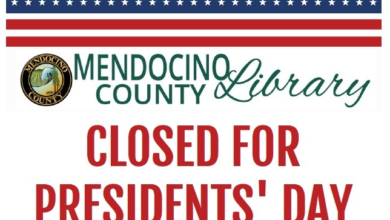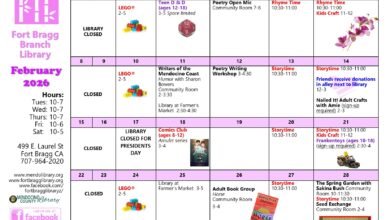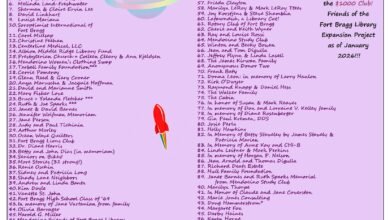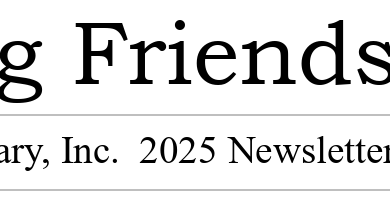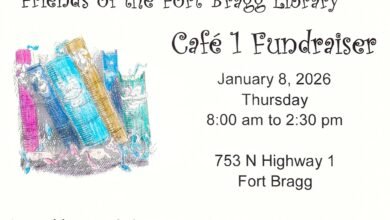Seed Swap & Plant Exchange
SEED SWAP & PLANT EXCHANGE
plus Seed Saving Demonstrations
Saturday, March 16, 2024, 1-3:30 pm
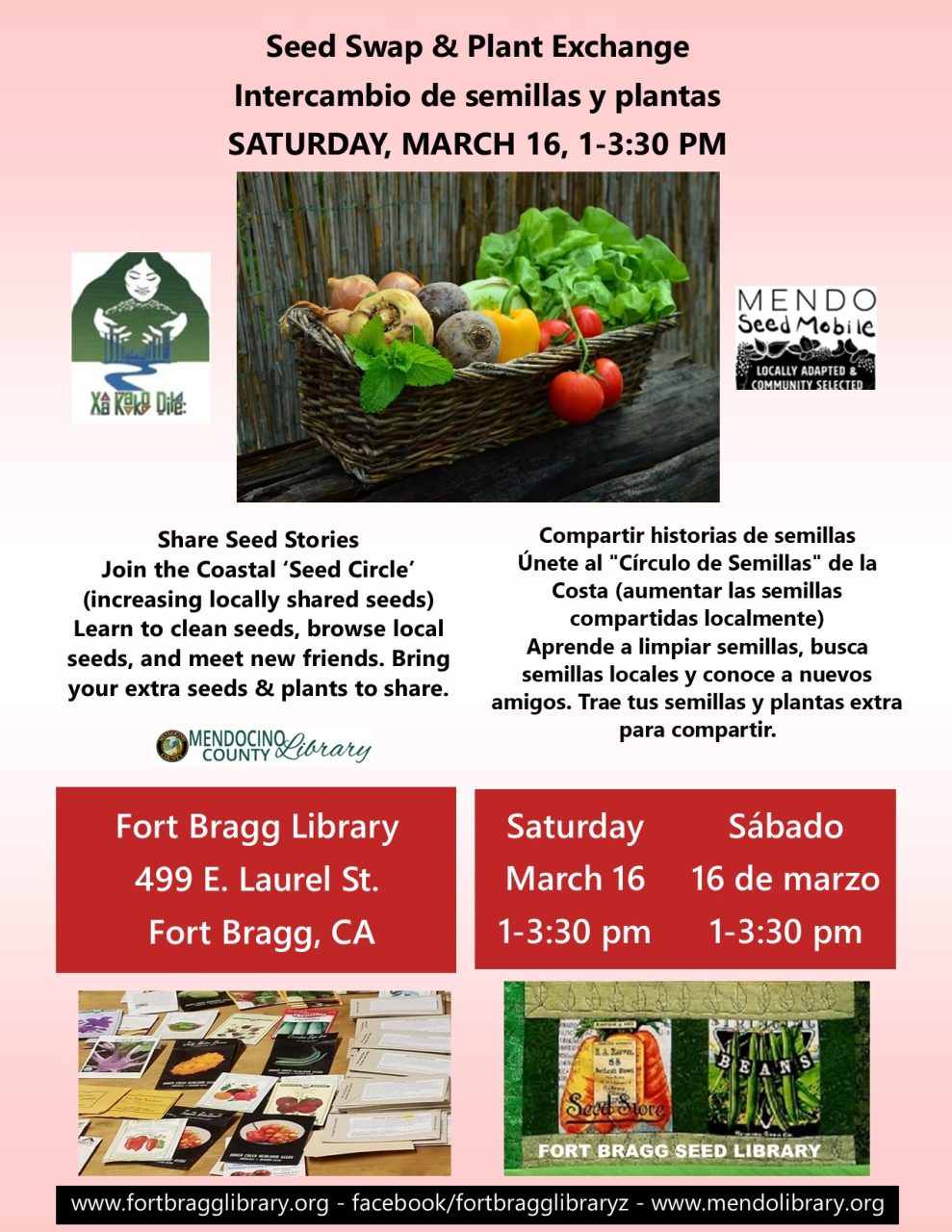 The Fort Bragg Seed Library is hosting a seed swap and plant exchange in the community room at the Fort Bragg Branch Library, Saturday, March 16 between 1:00 and 3:30 PM.
The Fort Bragg Seed Library is hosting a seed swap and plant exchange in the community room at the Fort Bragg Branch Library, Saturday, March 16 between 1:00 and 3:30 PM.
We’ll have some donated seed on hand and we expect local seed savers to attend and share some of their favorite varieties. Julia Dakin from Going to Seed and the Mendo Seed Mobile will be here with seed grown in Mendocino County plus Seed Circle kits to help us develop more locally adapted, delicious varieties. Julia will also be demonstrating seed saving techniques so bring any plants you’ve let go to seed. (This is a hands on workshop so be prepared to get a little dirty).
What to bring to the event:
- Plants you’ve let go to seed (and something to put your saved seed into such as envelopes, baggies, jars, etc)
- Notebook & pen to take notes
- Seed and seedlings from healthy plants to share from your home. (See instructions below.)
Seeds: We welcome commercial seed packaged for the last three years or saved seed from plants you have grown, both open-pollinated and landrace varieties. Please clearly label landrace seed. Do not bring seed you have saved from purchased produce.
Bringing Seed to Share at the Event – To improve the chances of success for your seed’s next grower, donated seed should be:
- Open-pollinated: Make sure the seed you donate was harvested from an open-pollinated variety, not a hybrid (unless it is part of a landrace project). Seed from fruits and vegetables purchased at the store, or even a farmers market, may not be open-pollinated. Do NOT bring currently patented plants or seeds
- Dry: Make sure seeds are dry.
- Clean: Have seeds reasonably cleaned by removing as much of the chaff as possible.
- Labeled: Make sure your seed is packaged with information as to type, variety, place, and year of harvest. If you isolated the crop and met the recommended population size, add that to the label, too! Download our Seed Donation Information slips here.
- Saved from healthy plants. Even if a disease does not get passed on through the seed, we do like to have some selection for disease resistance by only saving seed from healthy, strong plants.
- Saved from properly isolated plants (if they’re cross-pollinators). If plants can cross-pollinate you want to make sure to keep them isolated. Isolation means preventing pollen from plants within the same species from co-mingling. This keeps the seeds “true-to-type” so that they will grow the exact same plant again. “Easy” seeds can be fairly reliably saved without cross-pollination (and unintentional hybridization). “Easy” seeds include beans, peas, lettuce, and most tomatoes.
Do not bring seeds from the brassica family (ex. broccoli, Brussels sprouts, cabbage, cauliflower, collards, kale, mustard) or cucurbit family (ex. cucumbers, melons, pumpkins, squash) unless you have taken appropriate steps to prevent cross-pollination OR have clearly stated on your label that they may have crossed.
Collecting Seed at the Swap Much of the seed at this swap was grown by community members with love and care like our ancestors have done for thousands of years. Nonetheless, seeds are alive, and people have varying degrees of skill in saving seeds. You should know that you might experience low germination rates or receive seeds that were not properly labeled. We have not knowingly accepted any seeds that are chemically treated, patented, or genetically modified. We will have free envelopes on the table. Please shake the seed you want, and intend to plant this year, into these envelopes and label them immediately. Seed was donated for the entire community to access, please don’t take a full commercial packet of seed. (The exception to this is our “Go Crazy” table, with older seed that should be sown more thickly due to likely lower germination.)


